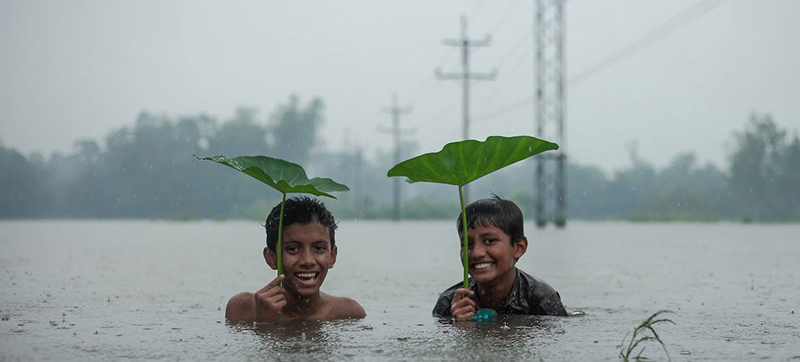 Extreme Weather
Extreme Weather Extreme weather caused two million deaths, cost $4 trillion over last 50 years
Over two million deaths and $4.3 trillion in economic losses; that’s the impact of a half-century of extreme weather events turbo-charged by man-made global warming, the World Meteorological Organization (WMO) said on Monday.
According to WMO, weather, climate and water-related hazards caused close to 12,000 disasters between 1970 and 2021. Developing countries were hit hardest, seeing nine in 10 deaths and 60 per cent of economic losses from climate shocks and extreme weather.
WMO said that Least Developed Countries and Small Island Developing States suffered a “disproportionately” high cost in relation to the size of their economies.
“The most vulnerable communities unfortunately bear the brunt of weather, climate and water-related hazards,” said WMO Secretary-General Petteri Taalas.
Staggering inequalities
In Least Developed Countries, WMO reported that several disasters over the past half-century had caused economic losses of up to 30 per cent of gross domestic product (GDP).
In Small Island Developing States, one in five disasters had an impact “equivalent to more than five per cent” of GDP, with some disasters wiping out countries’ entire GDP.
Asia saw the highest death toll due to extreme weather, climate and water-related events over the past 50 years, with close to one million deaths – more than half in Bangladesh alone.
In Africa, WMO said that droughts accounted for 95 per cent of the reported 733,585 climate disaster deaths.
Early warnings save lives
WMO stressed however that improved early warnings and coordinated disaster management have helped mitigate the deadly impact of disasters. “Early warnings save lives,” Mr. Taalas insisted.
The UN agency also noted that recorded deaths for 2020 and 2021 were lower than the previous decade’s average.
Pointing to the example of last week’s severe cyclonic storm Mocha, which caused devastation in Myanmar’s and Bangladesh’s coastal areas and hit “the poorest of the poor”, Mr. Taalas recalled that similar weather disasters in the past caused “death tolls of tens and even hundreds of thousands” in both countries.
“Thanks to early warnings and disaster management these catastrophic mortality rates are now thankfully history,” the WMO chief said.
‘Low-hanging fruit’
The agency had previously shown that just 24 hours’ notice prior to an impending weather hazard can cut the ensuing damage by 30 per cent, calling early warnings the “low-hanging fruit” of climate change adaptation because of their tenfold return on investment.
WMO issued its new findings on the human and economic cost of weather-induced disasters for its quadrennial World Meteorological Congress, which opened on Monday in Geneva with a focus on implementing the UN’s Early Warnings for All initiative.
Leave no one behind
The initiative aims to ensure that early warning services reach everyone on Earth by the end of 2027. It was launched by UN Secretary-General António Guterres at the COP27 climate change conference in Sharm al-Sheikh in November last year.
Currently, only half of the world is covered by early warning systems, with Small Island Developing States and Least Developed Countries left far behind.
Earlier this year, the UN chief brought together agency heads and partners to fast-track the Early Warnings for All initiative into action.
A first set of 30 particularly at-risk countries – nearly half of them in Africa – have been identified for the roll-out of the initiative in 2023.
Support Our Journalism
We cannot do without you.. your contribution supports unbiased journalism
IBNS is not driven by any ism- not wokeism, not racism, not skewed secularism, not hyper right-wing or left liberal ideals, nor by any hardline religious beliefs or hyper nationalism. We want to serve you good old objective news, as they are. We do not judge or preach. We let people decide for themselves. We only try to present factual and well-sourced news.







